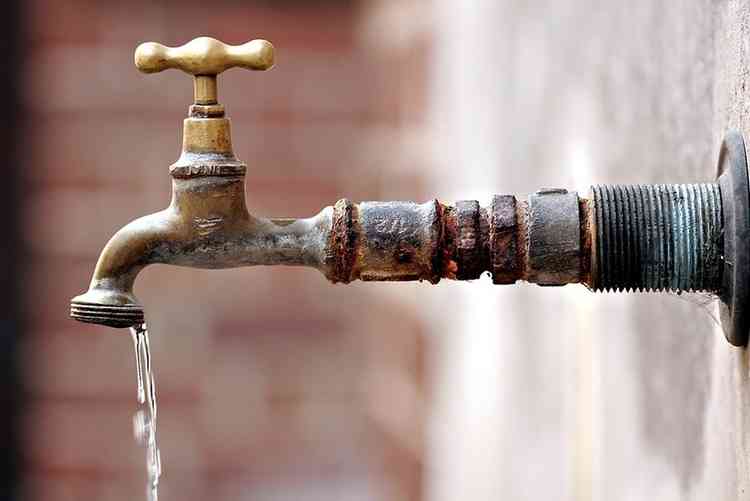
IN the heart of Bulawayo, the sound of running water is a distant memory for many families.
As the city grapples with the looming threat of water privatisation, residents find themselves at a crossroads, caught between government promises and the harsh realities of daily life.
The Bulawayo Progressive Residents Association (BPRA) has voiced concern over Bulawayo City Council’s proposed water utility model.
While council claims it will operate as a strategic business unit, residents fear that this model may lead to political interference and inadequate service delivery.
“As BPRA, we view the proposed model as controversial,” said Perm Ngoma, the association's director.
“Our concerns are deeply rooted in the potential for private investors to influence key decisions, undermining council’s authority and compromising residents’ interests.”
The fear is that despite the city council’s ownership, external entities could prioritise profit over public welfare.
“Such interference could erode accountability and result in water services that are neither affordable nor equitable,” Ngoma added.
- Revisiting Majaivana’s last show… ‘We made huge losses’
- Edutainment mix: The nexus of music and cultural identity
- ChiTown acting mayor blocks election
- Promoter Mdu 3D defends foreigners 30 minute set
Keep Reading
The push for water privatisation in Zimbabwe has sparked fierce backlash, especially in urban centres like Bulawayo and Harare.
Local governments advocate for reforms to improve service delivery, but citizens question the implications of commodifying a basic human right.
For Bulawayo residents, the stakes are high.
Many already endure severe shortages, relying on public taps that often run dry.
“We can’t allow our water to be controlled by profit-driven companies,” asserts Kingstone Zveushe, a resident of Magwegwe.
“Water is life and we will fight to keep it public.”
As Zimbabwe grapples with a history of economic hardship and infrastructural challenges, the conversation around water privatisation has gained urgency.
What’s more with metered water juiced as metered electricity gaining momentum in recent times.
The government frames privatsation as a necessary step to improve service delivery and attract foreign investment, but the reality is far more complex.
Tinashe Mutasa, a development economist, argues: “Water is a fundamental human right. Privatising this essential resource can lead to inequities, often resulting in increased costs and reduced access for vulnerable populations.”
His views resonate with many residents who worry that the profit motive will overshadow public welfare.
The nostalgia for a time when public water services were more reliable fuels much of the resistance against privatisation.
“We’ve seen what happens when essential services are neglected,” says Agnes Ndlovu, a long-time Bulawayo resident.
“Privatisation only serves to deepen inequality.”
Proponents of privatisation argue that it addresses the deteriorating state of water infrastructure.
Council officials assert that private investment could bring in resources to repair ageing systems and improve service delivery.
However, critics suggest that the focus should be on strengthening public institutions rather than transferring resources to private entities.
“The first issue we highlighted is that we cannot privatise water without the necessary laws in place,” said Hardlife Mudzingwa, the director for Community Water Alliance.
“The Urban Councils Act and the Rural District Councils Act need reviewing to empower local authorities as designated water service authorities.”
Mudzingwa also noted that privatisation contradicts section 4 of the Water Act and the inconsistent pricing of water discourages the privatisation model.
Farai Chikanda, a water policy analyst, emphasises that while investment is essential, privatisation is not the only solution.
“We must explore models that enhance public accountability and ensure water remains accessible to all,” he said.
Understanding this discourse requires examining Zimbabwe's historical context.
The country’s economic decline, particularly since the early 2000s, has severely impacted urban water supply systems.
“Frequent outages and infrastructural decay have left many citizens disillusioned with government capabilities,” Chikanda explained.
This backdrop fuels the narrative that privatisation might be a viable solution, yet it raises significant ethical and economic questions.
Urban water scarcity has become a growing systemic risk, particularly in the developing global south, where water supplies face numerous biophysical and socio-economic stressors.
Compounding risks include population growth, urbanisation, climate change and ecosystem degradation.
Experts point out that Harare is particularly vulnerable to increasing water scarcity due to existing supply shortfalls and limited capacity to cope with shocks.
Current estimates indicate that Harare’s formal treated water supply meets less than 40% of existing demand, relying predominantly on surface water resources that are dwindling.
In response to government’s push for privatisation, grassroots movements are gaining momentum.
Organisations like the Zimbabwe Coalition on Debt and Development advocate for a participatory governance model, emphasising transparency and accountability in water management.
Groups like the Combined Harare Residents Association (CHRA) and BPRA are organising community forums to educate residents about their rights and the implications of water privatisation.
These gatherings foster solidarity, empowering citizens to challenge policies threatening their access to essential resources.
The future of water management in Zimbabwe remains uncertain.
As the government navigates the complexities of privatisation, the voices of citizens and experts must be heard.
Ultimately, the path forward must prioritise community engagement, transparency and accountability.
As Ruben Akili, the director for CHRA, states: “We must hold our leaders accountable and ensure that any changes to our water system serve the people, not profit.”
As the government contemplates its next step, the call for inclusive dialogue and equitable solutions resonates louder than ever.
In a country where water is life, safeguarding this vital resource should be a collective responsibility, anchored in the principles of equity and justice.










